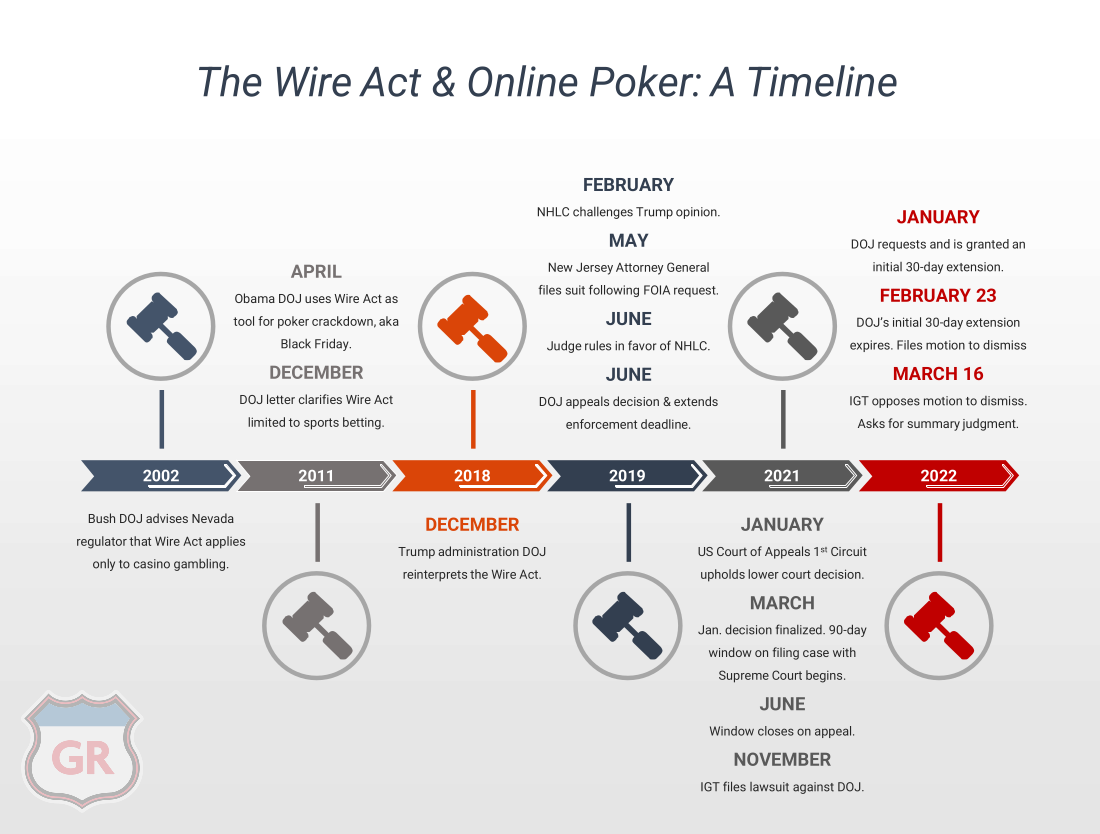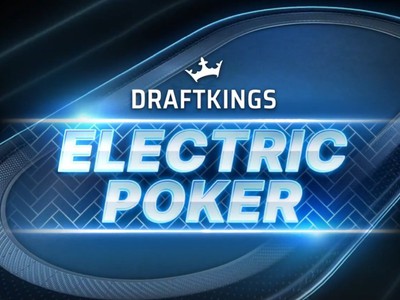[IGT] should not have to operate under a dangling sword of indictment while DOJ purports to deliberate without end the purely legal question it had apparently already answered.
IGT told a district court judge that it opposes a Department of Justice (DOJ) motion to dismiss the lawsuit the company filed over the department’s position on the Wire Act. It also asked the judge to, instead, issue a summary judgment in IGT’s favor.
The move could lead to several scenarios that would continue to frustrate the gaming industry, as the application of the Wire Act would remain unclear.
In a filing Wednesday in District Court for the District of Rhode Island, IGT said it opposes the DOJ’s motion to dismiss the case because doing so would leave it vulnerable to prosecution under the 1961 federal statute. IGT argued that the case New Hampshire Lottery Commission (NHLC) v. Barr — in which the First Circuit Court of Appeals ruled that the Wire Act only applies to online sports betting — should apply to its case as well.
“IGT is seeking nothing more than the same declaration and freedom to operate that NHLC and its vendor, NeoPollard, already received from the First Circuit,” Mark Hichar, an attorney for IGT, said in the filing.
“Such relief is appropriate and within this court’s jurisdiction to grant, because IGT, like the plaintiffs in NHLC, should not have to operate under a dangling sword of indictment while DOJ purports to deliberate without end the purely legal question it had apparently already answered.”
Hichar added that the DOJ’s argument to have the case dismissed because IGT faces no credible threat of prosecution leaves the government “free to commence prosecution against IGT in any of the 43 states and territories outside the First Circuit where IGT does business.
REVIEWBONUS- Generous welcome bonus
- $25 in no deposit funds
- Good selection of slots
The government’s motion to dismiss is fundamentally flawed on both the law and the facts and it should, therefore, be denied.
“But, even setting aside the First Circuit’s binding decision in NHLC, the government’s motion to dismiss is fundamentally flawed on both the law and the facts and it should, therefore, be denied.”
In its push for a summary judgment, IGT argued that there were no facts in dispute in the case. Hichar added that there was also no dispute that IGT offers products and services that would be considered illegal under a 2018 opinion by the DOJ’s Office of Legal Counsel (OLC), issued during the Trump administration.
“IGT is in the exact same commercial position as NeoPollard in NHLC,” Hichar said. “There is no reason to treat the two companies any differently.”
IGT, the largest provider of iGaming and lottery services in the US, and its US-based subsidiary initially sued the DOJ in November 2021.
The crux of the issue involves conflicting opinions issued by the OLC during the Obama and Trump administrations. While the Obama DOJ held in 2011 that the Wire Act applied only to sports betting, the Trump DOJ disagreed and reversed course in 2018.
In January 2021, the First Circuit ruled in the New Hampshire case that the Wire Act applies only to sports betting. The Biden DOJ declined to appeal that case before a June 2021 deadline to do so.

Gaming Law Attorneys Weigh In
A summary judgment requires that there be no justiciable questions of law or fact for the court to adjudicate. It would, therefore, be a powerful pronouncement.
US gaming law attorneys were divided over the Biden DOJ’s motion last month to dismiss the case. Some said IGT picked a district court within the First Circuit in an attempt to broaden the appellate court’s ruling in the New Hampshire case, while others said the DOJ purposefully wants to keep the matter ambiguous.
On this latest development, Jeffrey Silver told US Gaming Review that IGT “is trying to coax the court into making a dispositive determination on the interpretation of the Wire Act that, while not specifically applicable to other circuits, would be directly on point, and thereby be persuasive.
“A summary judgment requires that there be no justiciable questions of law or fact for the court to adjudicate. It would, therefore, be a powerful pronouncement. But I would note that courts are generally hesitant to issue a summary judgment in the face of opposition by the other party.”
Behnam Dayanim, a partner in the Washington, DC office of Paul Hastings LLP, said that it appeared that IGT was telling the court “that, since the DOJ has not contested the First Circuit ruling, nothing prevents the court from ruling in IGT’s favor without further proceedings.
“If the court grants IGT’s request, it would simply make explicit that the First Circuit’s ruling applies to IGT. The effect of any such judgment would not be meaningful to the industry as a whole.”
The case in Rhode Island District Court is IGT et al v. Garland et al.










